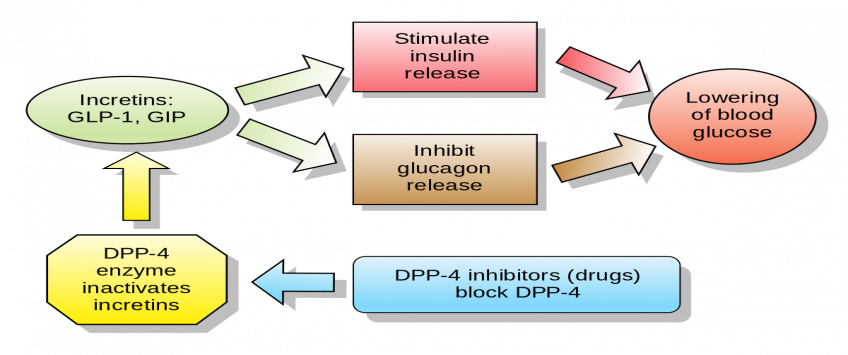Glucagon-like peptide 1 belongs to a group of hormones called incretins because they help trigger a rise in insulin secretion due to factors from the intestines. Glucagon-like peptide 1 is a hormone made from a molecule called pre-proglucagon, which is cut up to produce many hormones, including glucagon.
Because they share the same origin, these hormones are similar and referred to as 'glucagon-like'. The major source of glucagon-like peptide 1 is the cells that line the intestines, known as L-cells. Still, it is also secreted in smaller quantities by the pancreas and the central nervous system. Glucagon-like peptide 1 releases insulin from the pancreas, increases the number of cells that produce insulin in the pancreas (beta cells), and reduces glucagon release.
Glucagon-like peptide 1 also stimulates feelings of fullness by acting on centres in the brain that stimulate the feeling of fullness and slow the emptying of the stomach.
Food is the main trigger of glucagon-like peptide 1 release, which is detectable within ten to fifteen minutes of eating and remains elevated in the blood circulation for up to four hours afterwards. Besides food, nerve activity stimulation can also affect glucagon-like peptide release. As a result of somatostatin, less glucagon-like peptide 1 is produced. An enzyme called Dipeptidyl peptidase-4 rapidly breaks down glucagon-like peptide 1.
Drugs developed to mimic glucagon-like peptide 1 in the blood circulation to improve the control of type-2 diabetes glucose levels have not been found to cause overproduction. Known as GLP-1 analogues, these drugs help lower blood sugar levels.
The level of glucagon-like peptide 1 rises naturally after some types of weight-related surgery, which may be contributing to patients' observed weight loss and improvement in type-2 diabetes after these procedures. Several GLP-1 analogues have recently been approved for treating obesity, including Liraglutide, in the UK and other countries. Researchers are examining other GLP-1 analogues, which may also be approved in the future.
Too little GLP-1 hormone after a meal may increase the likelihood of or worsen obesity. As GLP-1 inhibits appetite after a meal, if less of this hormone is released, individuals may be hungrier between meals and more likely to snack.
If you want to learn more about GLP-1 or need to ask something from a professional, then our doctors at weightloss.coach is available for your help. Get in touch with us to receive all the help you need with your weight loss medication

Comments